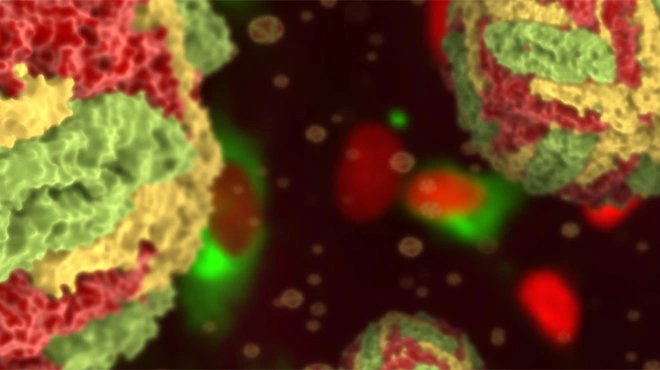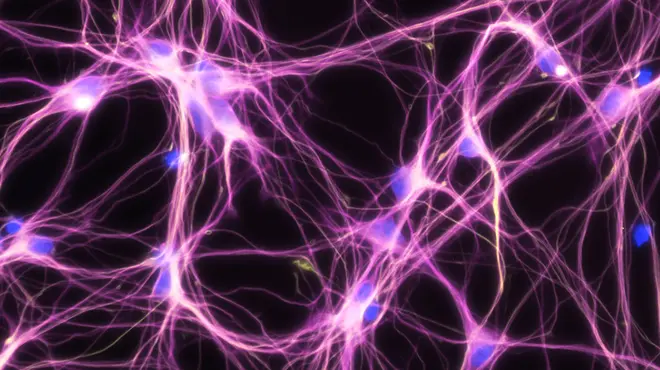If you suffer from a serious disease rare enough to stump all your doctors, the National Institutes of Health (NIH) Clinical Center might be your best chance for treatment.
That hope brought a girl who was constantly on and off antibiotics to the giant NIH research hospital outside Washington, D.C. The patient had contracted one bacterial infection after another, suggesting a major problem with her immune system. It was unable to fight off invaders.
Her visit launched research that identified the molecular target of the rare immune disease, now called APDS/PASLI, offering a potentially promising treatment approach. It also led to a clinical trial with a Novartis compound in near-record time, thanks to some quick-thinking scientists.
The girl’s initial workup showed high levels of white blood cells called lymphocytes, which were hardly expected in someone with a weakened immune system. Her clinical team decided to take a close look at her genome, sequencing all of her protein-coding genes to find the root of the unusual immunodeficiency.
“Among the mutations we found was one in a gene called PI3 kinase, a well-known gene that is involved in cancer and cellular proliferation events in the body,” recalls Michael Lenardo, Director of the National Institute of Allergy and Infectious Diseases (NIAID) Clinical Genomics Program.
The girl’s mutation was in a version of the PI3 kinase gene with a component called p110-delta, which can regulate lymphocyte proliferation. Moreover, the mutation took a specific form.
“PI3 kinase can be mutated in all sorts of solid tumor cancers, and those mutations actually activate this kinase,” Lenardo explains. “And her mutation was essentially the same mutation that comes up in these various tumors.”
Additionally, her lymphocytes looked prematurely aged and weren’t working very well.
These unexpected results suggested that “this mutation revs up her PI3 kinase and drives her cells to proliferate like crazy, as if they are being constantly stimulated by antigens,” Lenardo says. “They begin to wear out, because they have been over-stimulated.”
Could a drug cut back the over-stimulation? The NIAID researchers first tried rapamycin, a drug that works in many molecular pathways downstream of PI3 kinase. “We found that we could restore the balance of new good cells that were not over-proliferated,” he says. “But that drug doesn’t directly reverse the over-activity of her mutated p110-delta.”
Finding families at rare risk
While exploring potential treatments for the girl, the team also searched for patients with the same problem. The scientists went on to identify a total of 14 patients in seven families with mutations in the same gene who exhibited similar immunodeficiency symptoms. Diagnosed as early as two years old, these children suffer from repeated infections, and over the years the over-stimulated lymphocytes often develop into a lymphocyte cancer.
The NIAID scientists called this condition PASLI disease (for p110 delta Activating mutation causing Senescent T cells, Lymphadenopathy and Immunodeficiency) and published their results in October 2013 in Nature Immunology. Earlier that month, researchers at the University of Cambridge, UK had reported similar findings in Science, dubbing the disease APDS (Activated PI3K-delta Syndrome).
The papers quickly caught the attention of Novartis Institutes for BioMedical Research (NIBR) researchers in Basel, Switzerland. “We realized that we might be sitting on a potential treatment for these patients,” says Andreas Christ, a Director in Translational Medicine at NIBR.
Retargeting treatment
NIBR had designed an oral PI3 kinase-delta inhibitor known as CDZ173 to treat autoimmune diseases. This drug candidate had shown that it might be promising in early clinical trials with healthy volunteers in the United States, allowing further development in autoimmune diseases.
“We had biomarkers indicating preliminarily that it was effective in inhibiting the PI3 kinase-delta pathway,” Christ says.
The scientists had not expected that CDZ173 would help with immunodeficiency, a quite different condition. But when the PI3 kinase-delta papers came out, “we immediately realized that our investigational drug might work in these patients,” he says. “We already had sufficient clinical data to allow us to do clinical studies.”
NIBR began to reach out worldwide to sites treating patients with immunodeficiencies, contacting experts in more than 30 countries. From their outreach the scientists now know of about 150 patients globally with the illness, and Christ speculates that the total might be as high as a few thousand.
The NIBR researchers also began preclinical tests of the compound for APDS/PASLI and started talking with regulatory authorities in the United States and Europe to clarify the path to bring the drug to market.
Lenardo and his NIAID colleagues at the NIH Clinical Center are collaborating on an open-label clinical study for patients 16 years or older, with the first participant taking a low dose of the compound in August 2015. Safety and efficacy have yet to be proven. Other trial sites are launching in Europe, and Novartis is among industry sponsors of a worldwide APDS/PASLI registry started up by the European Society for Immunodeficiencies.
“It’s a terrible disease and it has all sorts of adverse consequences for the lives of these patients,” says Lenardo. “We’re very hopeful that this kind of precisely targeted therapy can really help them.”
If successful, the development of CDZ173 will have been slashed to less than half the industry norm of more than a decade. And Christ emphasizes that NIBR will move ahead although it doesn’t expect to make back its investment on trials for such a rare condition.
“All of our NIBR research has to be paid for, of course, but we have the freedom to explore indications that are not of commercial value to help people who are in desperate need of a medicine,” Christ says. “This is just the right thing to do.”



